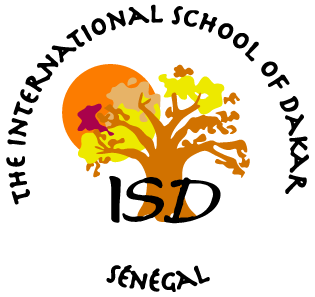Yago Moreno: On the Singularity
- ISD Communications

- Mar 5, 2018
- 3 min read

Yago Moreno (Class of 2018) wrote his EE in Philosophy. He loves math and reading books!
Give us an elevator pitch of your EE:
In 1997, the computer program Deep Blue beat world champion Gary Kasparov at chess, and recently, Alpha Go Zero taught itself to play the game of Go and surpassed all human knowledge of the game in 40 days. We are living in the world of Artificial Intelligence, and this begs the question “what will humans become”. Futurist Ray Kurzweil says that for humans to survive, we must become one with computers: upload our consciousness from the brain to a computer and shed our bodies. I find this scary, and decided to take a stance on the question. I explored Merleau-Ponty’s philosophy, and have found that the body plays an important role in the conscious experience: it defines how we experience the world around us, but also holds knowledge of its own, like how to walk up the stairs or typing an e-mail without looking at the letters on the keyboard. My Extended Essay counter argues the concept of uploading using the phenomenological philosophy of Merleau-Ponty.
How did you find your topic:
I have had an interest in philosophy for a long time, and more specifically continental philosophy. From the start, I knew I wanted to write about a French philosopher. It was through my advisor that I discovered Ray Kurzweil, and I watched his movie The Singularity is Near. From that, I got interested in the pop culture topic of the Singularity, and I thought of how I could make it academic. I came across the contemporary philosopher David Chalmers, who wrote an introductory paper to the Singularity in an attempt to start academic discussion on it, and I went from there.
What was your biggest challenge?
Staying on focus. I made the mistake of not defining my research question before starting my research. I read a lot – the entirety of one of Merleau-Ponty’s books, lots of papers – without knowing what I was really looking for. I wrote my first draft still without a question; and it was all over the place. It was only after the draft that I narrowed in on a research question, and had to “throw away” a lot of the research I had made. It felt like I did double the work. Despite it being a much more fulfilling experience, the more you know the more fun, it wasn’t efficient in terms of time and it was also in making the paper respond to the criteria. By having such a confusing paper, despite the great ideas, the essay was very weak in terms of points, especially in Criterion A: Focus and Method. Remember that the essay is about answering the question: the body is about addressing the question in the most complete manner, but ultimately, you need a coherent and strong answer. If you look at the assessment criteria for Criterion A, even the lowest mark band reads “a research question is stated”. No research question, no essay.
Would you recommend to other students writing a paper in a subject they do not take?
It was certainly a challenge, and I would not recommend it to most people. Firstly, it requires that you understand the expectations of an entirely new subject. On top of reading the Subject Brief for Philosophy, I also read through the IB Philosophy guide to understand the IB approach to the class. In the EE, you are expected to meet the requirements of the essay, but also exemplify the objectives of the course itself. It will be on you to learn from scratch how to approach a new subject. I also had the chance of having an advisor with great experience in the subject. Despite your potential advisor’s willingness, I would be weary if they do not have a solid background in your subject: in a worst case scenario, they will be your greatest ally in producing a work that meets the requirements.





Comments